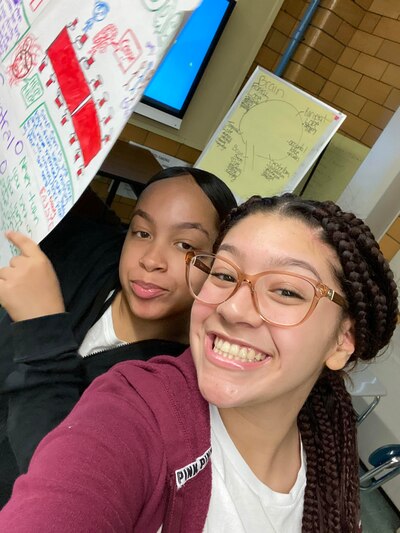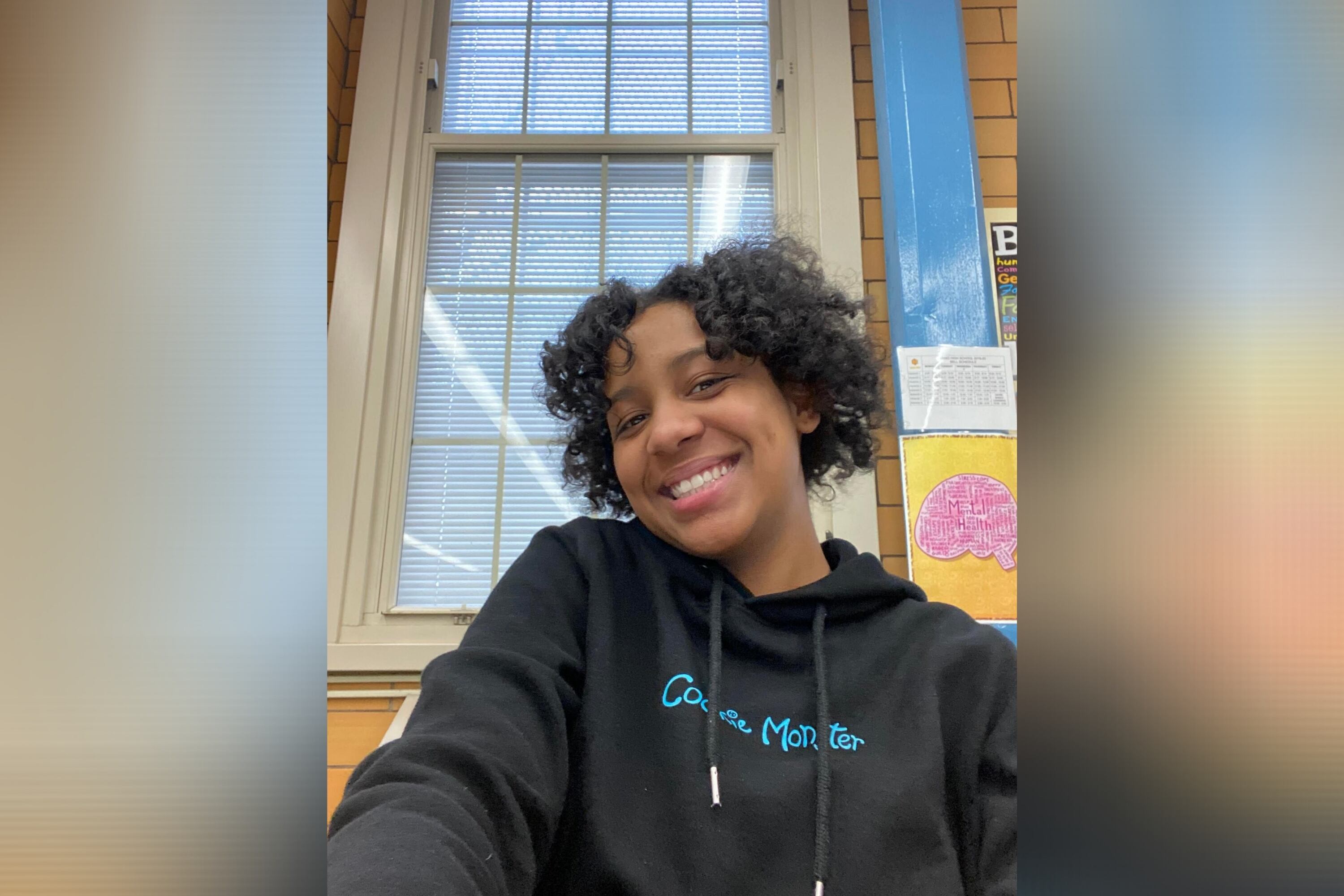A group of students from a South Bronx high school spent their summer as COVID-19 case workers.
Health, Education, and Research Occupations High School, or HERO — a six-year career and technical high school where students can earn an associate’s degree — created an internship program, training 20 of its students to help identify infections in the school community and connect people to health resources and other social services.
During the course of their coronavirus response work, students did not find a single virus case. Instead they found families who needed help paying for rent, groceries, dental work, finding mental health services — or even how to manage power outages after the storm Isaias tore through New York. At the same time, the internship helped the students themselves during a summer when options for teens to earn money were few, and the city slashed slots for its popular Summer Youth Employment Program.
“We were looking for ways to keep our community as safe as possible,” said HERO Principal Kristen Cahill, noting that her school is designed to put students on the path to careers in health care and partners with Hostos Community College and Montefiore Medical Center. “We needed to come up with some internships on our own.”
The six-week program included a two-week crash course on the history of epidemiology and social work, how to conduct contact tracing, protect parents’ privacy, and interact with families who might overshare or be reluctant to express their needs. The program reached over 200 families who agreed to receive daily texts and weekly phone calls to monitor if anyone in their immediate household was experiencing virus symptoms. Students earned a $750 stipend, supported by funding from the social service organizations Here to Here and the Family Independence Initiative.
Some students were initially nervous about calling and texting the parents of their classmates and trying to get them to open up about their family’s problems. (Student interns were only given the first names of those who participated, though the parents were informed that it might be possible for students to figure out their identities.)
“After speaking to them over time, we got more comfortable and so did they,” said rising junior Nyla Rivera. “They started to expect a call or a text from us.”

Rising sophomore Maria Shahbain at first struggled to connect with one of her assigned families, a single parent of three whose husband had passed away. But Shahbain was able to build enough of a relationship that the parent ultimately asked for help finding fresh food and rental assistance.
Shahbain referred the parent to a program that could deliver fruits and vegetables. She then reached out to housing organizations on behalf of the family.
“Even though we’re only supposed to call once a week, I called her twice or three times that week,” Shahbain said.
But students also learned that determining what families need is only half the battle.
During his first call with one of his assigned families, student Justin Rosa quickly figured out that the participant’s mother needed dentures. She told Rosa her mother had limited mobility, was fearful of having the procedure conducted in a hospital, and that her medical coverage came through Medicare. Using an online database, he found three viable options.
There was just one problem: He couldn’t get in touch with the family again.
“I wasn’t able to present my referrals — I wish I could,” Rosa said. “There’s so many needs and so many things that go into one family’s life and you want to just help them in the best way you can.”
Many students ran up against similar roadblocks, but Principal Cahill urged them not to become discouraged, noting that lots of social service providers don’t immediately see the fruits of their labor.
“If you do the right thing and you follow through and you’re reliable and maintain a tone that’s professional,” Cahill said, “you’re setting them up to access services in the future. You might not witness that, but you’re still creating value.”
One of the key tools students used was a website called Bronx Impact, which acts as something of a search engine for agencies that provide everything from legal help to jobs programs. (The students also had close supervision from school staff who helped monitor their recommendations.)
Even so, students began to appreciate just how difficult it can be to find help. Tracking down the correct social service provider sometimes morphed into a labyrinthine process of internet sleuthing and making phone calls with lots of dead ends, leaving some students wondering how overwhelmed families were supposed to navigate the dizzying array of providers.
“You have to go through so much just to find help,” said 16-year-old Meadow Rodriguez, a rising junior at HERO who plans to become a surgeon. “Not everybody is tech smart.”
Rodriguez said some of the families she was assigned to wound up not needing much help. (School officials said the community’s needs this summer were not as dire as they predicted.)
Still, Cahill said she is considering ways of keeping the program going — and funded — as the school year starts up again. Some experts worry that infection rates could increase as the weather cools, flu season arrives, and school buildings reopen. The school, Cahill said, may wind up doing some of its own contact tracing — a task that could be made easier if those reaching out are familiar community members instead of strangers.
With the summer experience under their belts, some students are ready to hit the ground running this fall.
“It’s more significant work skills than you would normally be able to provide teenagers with during an internship,” Cahill said. “I think the kids were learning skills that could use more practice.”






